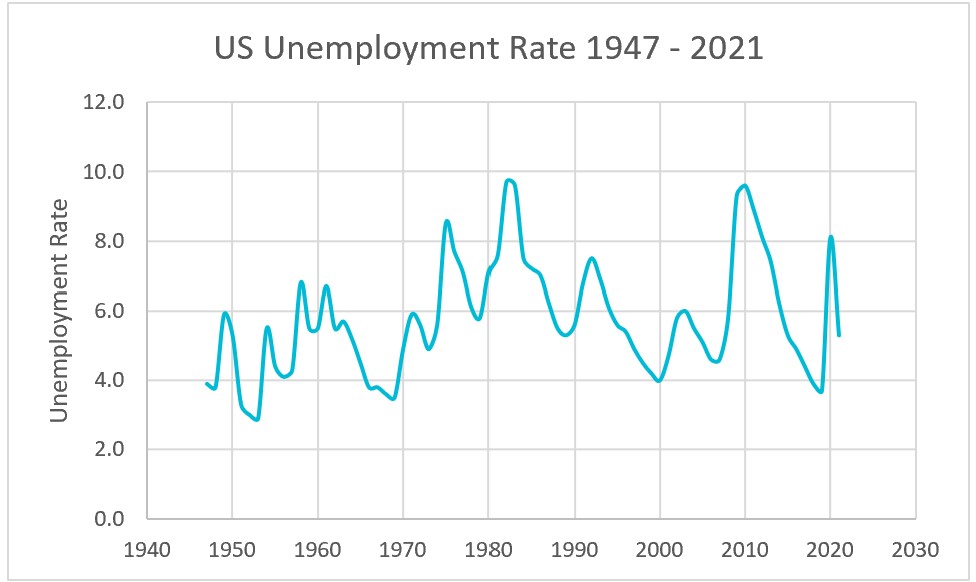Unemployment occurs when a person is willing and available to work and has actively sought a job during the prior four weeks.
Since the late ’40s, the US unemployment rate has ranged between 10% and 3.5%.

Source: Bureau of Labor Statistics
Governments have established policies to control their economies, intending to further economic growth and minimize the hardship of a recession. Rising unemployment is the most painful consequence of a recession. The unemployed are people who are not currently employed but are actively seeking a job.
Long-term unemployment can result in difficult challenges, including the forced sale of a home, delaying needed health care, and possibly going hungry. The discouraged worker’s self-esteem can also suffer. Crime often increases during recessions as desperate people do desperate things. Unemployment also adversely impacts governments. They lose tax revenues and pay more for social programs such as Medicaid and unemployment insurance.
Policymakers use fiscal and monetary policies to stimulate the economy and reduce unemployment. Supply-side economists believe the best economic policy focuses on increasing the aggregate supply with policies that promote business development, such as tax incentives. By increasing the long-run aggregate supply, the economy can experience growth and a drop in unemployment without adding inflationary pressures. By decreasing tax rates, policymakers prompt entrepreneurs to take risks. New technologies are more likely to be developed—productivity increases. Government spending may also reduce unemployment. Companies hired by the government to build roads, produce weapons, and teach, may need to hire additional workers to provide the goods or services. The hired workers and additional profits provide added income to spend on goods and services, furthering growth among the companies not directly hired by the government.
Circular Flow – We Depend on Each Other
Economics – Managing Our Scarce Resources
Gross Domestic Product – Measuring An Economy’s Performance
Business Cycles
Supply and Demand – The Costs and Benefits of Price Controls